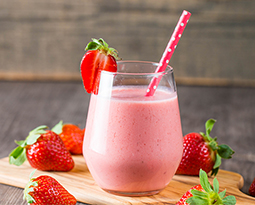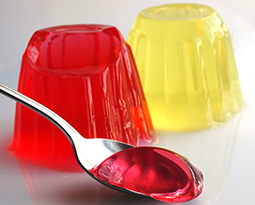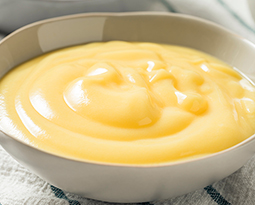PaediaSure Fibre is suitable for the dietary management of children weighing 8-30 kg with, or at risk of developing, disease-related malnutrition. PaediaSure Fibre contains a unique mix of ~50:50 fermentable and bulking fibres designed to provide a multitude of benefits in the gut and beyond.*1-6 PaediaSure Fibre is clinically proven to reduce constipation and gastrointestinal (GI) symptoms in paediatric patients:†7
PAEDIASURE® FIBRE
IN A 6-MONTH CLINICAL STUDY CHILDREN CONSUMING PAEDIASURE FIBRE OR PAEDIASURE PLUS FIBRE HAD A REDUCTION IN GI SYMPTOMS**‡7
- 58% reduction in vomiting.7
- 65% reduction in nausea.7
- 64% reduction in abdominal distension/bloating.7
PAEDIASURE FIBRE AND PAEDIASURE PLUS FIBRE ARE CLINICALLY PROVEN TO REDUCE CONSTIPATION IN PAEDIATRIC PATIENTS**‡7
- 78% reduction in constipation.7
- Leading to a 37% reduction in laxative prescriptions.¶7
Watch the mode of action video below to learn more about the wide-reaching benefits of fibre.
PaediaSure Fibre is nutritionally complete, providing 1.0 kcal/ml and is available both as a 200 ml ready-to-drink milkshake-style oral nutritional supplement (ONS) and a 500 ml ready-to-hang (RTH) tube feed. The ONS comes in four tasty flavours: banana, strawberry and vanilla.
PaediaSure Fibre is great tasting, tried and tested and loved by children so you can be confident that your patients will drink their ONS.8
Features
Suitable for
| Suitable for
| Suitable for
| Clinically
| Gluten free |
|---|---|---|---|---|
| √ | √ | √* | √ | √ |
* Vitamin D is synthesised from cholesterol, extracted from the grease in wool sheared from live sheep.
Nutrition
PaediaSure Fibre is a Food for Special Medical Purposes, for use under medical supervision.
Nutrition | Per 100 ml | Per 200 ml |
|---|---|---|
Energy | 424 kJ / 101 kcal | 847 kJ / 202 kcal |
Protein | 2.8 g | 5.6 g |
Fibre | 0.73 g | 1.46 g |
of which FOS** | 0.23 g | 0.46 g |
**fructo-oligosaccharides
Preparation
PaediaSure Fibre is best served chilled and can be frozen into cubes and lollipops. Shake well before use.
RELATED PRODUCTS
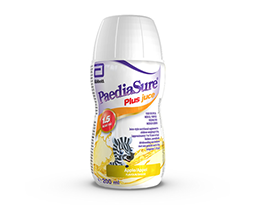
PaediaSure Plus juce
PaediaSure Plus juce is a 1.5 kcal/ml, ready-to-drink, juice style oral nutritional supplement suitable for the dietary management of children weighing 8 - 30 kg with, or at risk of developing, disease-related malnutrition. Presented in a 200 ml bottle, PaediaSure Plus juce is ready-to-drink and is available in two delicious flavours: apple and very berry.
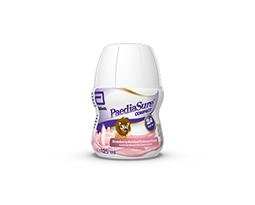
PaediaSure Compact
PaediaSure Compact is a 125 ml oral nutritional supplement suitable for the dietary management of children weighing 8 - 30 kg with, or at risk of developing, disease-related malnutrition.
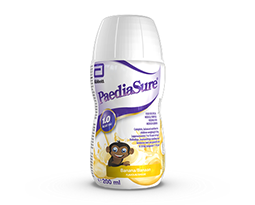
PaediaSure Abbott
PaediaSure provides 1.0 kcal/ml and is suitable for the dietary management of children weighing 8-30 kg or aged 1-10 years with, or at risk of developing, disease-related malnutrition. Presented in a 200 ml bottle, this milkshake style oral nutritional supplement is ready-to-drink and available in four delicious flavours: banana, chocolate, strawberry and vanilla.
RELATED CONTENT
Benefits of dietary fibre for children in health and disease
Benefits of dietary fibre for children in health and disease
- Logo
-

- Main Image
-
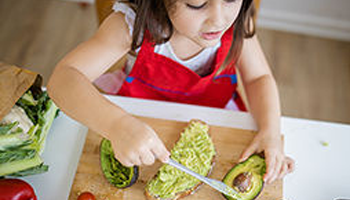
- Tagname
- Article
- Logo link
- title
- Benefits of dietary fibre for children in health and disease
- Content Reference
- /content/an/hcpproconnect/uk/en/home/paediatric/resources/public/Benefits-of-dietary-fibre-for-children-in-health-and-disease
- Abstract
-
This consensus article from Iva Hojsak and colleagues highlights the importance of dietary fibre, an essential nutrient that is crucial for children in health and disease. Differing functional properties according to fibre type, whether bulking or fermentable, are discussed and benefits for health explained. Practical information is provided for clinicians and practitioners to help children meet their fibre needs.
- Publish Date:
- Jan 2022
Pedi R‐MAPP a nutritional awareness tool, support consultation with children
Pedi R‐MAPP a nutritional awareness tool, support consultation with children
- Logo
-

- Main Image
-

- Tagname
- ARTICLE
- Logo link
- title
- Pedi R‐MAPP a nutritional awareness tool, support consultation with children
- Content Reference
- /content/an/hcpproconnect/uk/en/home/paediatric/resources/public/R-MAPP
- Abstract
-
Support upskilling of dietitians to complete TECs assessments, BDA Paediatric Specialist Group developed guidance on how to complete remote dietetic consultations for HCPs working in paediatric primary healthcare
- Publish Date:
Tackling Gastrointestinal Intolerance in Children - Symptom Based Consensus Guide
Tackling Gastrointestinal Intolerance in Children - Symptom Based Consensus Guide
- Logo
-

- Main Image
-

- Tagname
- INFOGRAPHIC
- Logo link
- title
- Tackling Gastrointestinal Intolerance in Children - Symptom Based Consensus Guide
- Content Reference
- /content/an/hcpproconnect/uk/en/home/paediatric/resources/public/Tackling-Gastrointestinal-Intolerance-in-Children---Symptom-Based-Consensus-Guide
- Abstract
-
The consensus guide ‘A practical guide to identifying and managing GI symptoms in children who require oral nutritional supplements’, supported by Abbott, has been developed by a multi-disciplinary group with a specialist interest in paediatric gastrointestinal issues. It has been designed to support members of the multidisciplinary team (MDT) identify, assess and manage GI symptoms in children. It brings all the information together in a concise format that is easy to use on a day-today basis, including recommendations for screening, assessment and monitoring procedures.
- Publish Date:
- May 2020 | 5 min read
Footnotes:
*PaediaSure Fibre/Plus Fibre contains fermentable and bulking fibres in a ratio of approximately 50:50. Soy polysaccharide has both fermentable and bulking properties.
†In a 6-month clinical study, 94% of children in the study received PaediaSure Fibre or PaediaSure Plus Fibre.
**A prospective, observational, multicentre study to determine the usage patterns, gastrointestinal tolerance, anthropometrics, and safety of high-fibre enteral feeding in malnourished children with growth failure. Study conducted between February 2013 and June 2015 and comprised of 345 paediatric patients with a weight and height of <2 SD percentiles for their age from 17 centres. During a six-month follow-up period, changes in anthropometrics, gastrointestinal symptoms, defecation habits and safety data relating to adverse events were analysed. 94% (323/345) of children received PaediaSure Fibre or PaediaSure Plus Fibre.
‡Versus baseline
§Defecated less than 3 times per week
¶Children consuming PaediaSure Fibre/Plus Fibre experienced less pain on defecation, less reluctance to defecate and a reduction in laxative use.
References:
1. Stephen AM et al. Nutr Res Rev. 2017;30(2):149–190.
2. Roberfroid MB et al. Br J Nutr. 2010;104 Suppl 2:S1–S63.
3. Schley PD, Field CJ. Br J Nutr. 2002;87(suppl 2):S221–S230.
4. Kamal E et al. Front Nutr. 2021;10(8):552049.
5. Titgemeyer EC et al. Am J Clin Nutr. 1991;53(6):1418–1424.
6. PubChem. Croscarmellose sodium. February 2022. Available at: https://pubchem.ncbi.nlm.nih.gov/compound/Carboxymethylcellulose-sodium. Last accessed February 2024.
7. Kansu A et al. Acta Paediatrica. 2018;107(6):1036–1042.
8. Data on file. Abbott Laboratories Ltd., 2007 (PaediaSure Plus & PaediaSure Plus Fibre taste testing).
